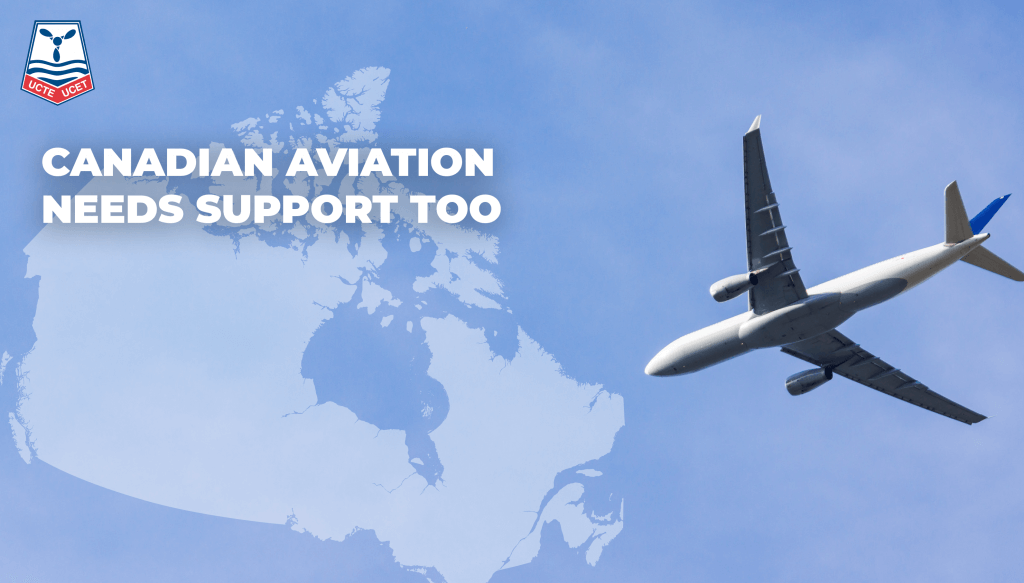Aviation Workers Need A Parachute
Not only are Canada’s airports in trouble as a direct impact of the coronavirus, but so are the people who work to keep our travel safe on the ground like workers at airports, and those at Nav Canada who keep the airspace safe above us. The majority of Canadians are not travelling for business and certainly not for pleasure until they feel comfortable to do so.
Yet, the truth is that in a country like Canada, airports are an essential service. We need people to get back and forth to work in the resource sector and to visit family who live across the province or across the country. Canada may have been created by the railroad, but it has been maintained and grown through our community of airports from coast to coast to coast.
Canada’s airports are an economic engine that create their own wealth for their communities and the Canadian economy. According to Canadian Airports Council, in 2016 Canada’s airports handled over 140 million passengers, contributed $48 billion in economic output, $19 billion in GDP, 194,000 jobs and $13 billion in wages. When indirect and induced data are included, the total impacts jump to $79 billion in economic output, $35 billion in GDP, 355,000 jobs, and $22 billion in wages.
Prior to the pandemic, airports generated over $7 billion in tax revenue that was directed to various levels of government. Larger airports like Ottawa International Airport are major contributors to the prosperity of the local economy, generating $2.2 billion in total output each year. Smaller regional airports like North Bay Airport create economic opportunities for local businesses. Regardless of size, all airports are independently operated and are mandated by regulation to be self-sustaining.
But since the virus hit, passenger traffic has slowed to a trickle and airports have seen a dramatic decline in revenues and income. Nav Canada, our civil air navigation system said in May that air traffic decreased in April by an average of 74.7 per cent compared to April 2019. In June it wasn’t much better. Nav Canada reported that air traffic in June 2020 decreased by an average of 71.1 per cent
When will it get better? Not any time soon. Airlines and aviation experts are suggesting that the window for dramatic improvement in these figures and the economic well-being of airports is at least two years away. The real question is not when, but how. As in, how will airports survive the next two years of turbulence?
The federal government made a start by providing some short-term help through rent relief and the pandemic employer wage subsidies. These were welcomed and appreciated but this isn’t enough. A full rent relief program is needed that lasts until air traffic gets back to 90 percent of what it was before the pandemic. There also needs to be an expansion of the Airports Capital Assistance Program that assists smaller airports to make improvements and repairs. Finally, government needs to include wage and maintenance support programs to allow regional airports to make it through to better times.
The federal government should also be working with their provincial and municipal partners on ways to cooperatively provide financial support and tax relief to airports of all sizes. Furthermore, consideration needs to be given to allow larger airports to borrow more today so that they can secure their future and our airports for tomorrow. Government needs to recognize that airports have a remarkable capacity to generate income and growth. They should be permitted the opportunity to expand their services like shopping and arrivals duty-free services to support this essential service.
Finally, the federal government should tie any financial assistance to all of the aviation sector to conditions that protect the jobs and job security of the people who work in this industry. They are as essential to the operation of airports and air transportation as planes and runways and airline companies and should be treated accordingly.
The vastness of Canada makes air travel a necessity and not a luxury. It is critical to the economies of so many communities and for the well-being of hundreds of thousands of Canadians. It is time for the federal government to show its long-term commitment to maintaining our aviation industry now so that they are ready for us when we need them.
Dave Clark
Union of Canadian Transportation Employees
Ottawa
An article will be published in The Hill Times in the coming weeks. We will share it with you at the time of publication.
